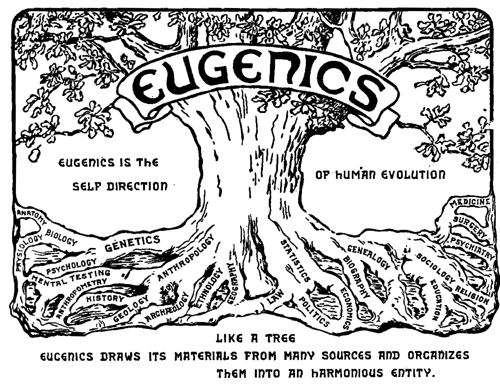Anonymous, Pregnant Mary (detail) (1505) When birth was the result of passion and bad luck, some people could sympathize with a young woman who was going to need help with her baby, though the stigma of bastardry was genuine. If money or a larger place to live were going to be necessary for her to stay in school, a sense of solidarity would likely lead friends and family to offer assistance. The father would feel strong pressure as well, for he was as responsible as she for the child. He might offer to get a second job or otherwise shoulder some of the burdens of parenting.
But once continuing a pregnancy to birth is the result neither of passion nor of luck but only of her deliberate choice, sympathy weakens. After all, the pregnant woman can avoid all her problems by choosing abortion. So if she decides to take those difficulties on, she must think she can handle them.Birth itself may be followed by blame rather than support. Since only the mother has the right to decide whether to let the child be born, the father may easily conclude that she bears sole responsibility for caring for the child. The baby is her fault.
It was the French author Anatole France who once ironically quipped, “The law, in its majestic equality, forbids the rich as well as the poor to sleep under bridges, to beg in the streets, and to steal bread.” Likewise, legalized abortion sounds like more “freedom” for women (or, at least, those who are already born). But in reality, by taking away the entire safety net, from welfare to public compassion to a father willing to take responsibility for her pregnancy, abortion has greatly diminished freedom for middle- and lower-class women.
And this danger of paternal and societal abandonment is particularly acute for mothers of disabled children:
The mother is even worse off if, during pregnancy, tests show that the child will have a disability: Doctors often press for abortion, in order to be sure that she does not later blame and sue them for the costs of raising her child. Some have suggested that health-care plans should provide no postbirth coverage for a handicapped child whose mother refuses a paid abortion. If she does not abort, after all, she will be causally responsible for the costs and the alleged burdens that the child brings. Even her friends and neighbors may make her feel ashamed for not choosing to abort her child.
 |
| Irving Fisher |
With this in mind, consider Ross Douthat’s New York Times editorial on “Eugenics, Past and Future.” In it, he describes Irving Fisher, the late Yale economics professor who was an outspoken racist and advocate of eugenics. As Yale Alumni Magazine recalls, Fisher’s ideas included that birth control be “‘extended from the white race to the colored’ and to other ‘undesirable’ ethnic and economic groups, ideally under the control of a eugenics committee established to ‘breed out the unfit and breed in the fit.’”
Occasionally, we still see this disgusting impulse rear its ugly head, like the February 2012 Detroit News editorial that advocated putting contraception in Michigan’s public drinking water to prevent children from being born to “immature parents,” families made up of mothers who are “poor women who can’t afford [children]” and fathers who are “sorry layabouts who spread their seed like dandelions.” But Douthat rightly acknowledges that such state-run eugenics is no longer in vogue. He is also right that it has been replaced with something equally dire, in the form of eugenic abortion:
That scenario is all but unimaginable in today’s political climate. But given our society’s track record with prenatal testing for Down syndrome, we also have a pretty good idea of what individuals and couples will do with comprehensive information about their unborn child’s potential prospects. In 90 percent of cases, a positive test for Down syndrome leads to an abortion. It is hard to imagine that more expansive knowledge won’t lead to similar forms of prenatal selection on an ever-more-significant scale.
Is this sort of “liberal eugenics,” in which the agents of reproductive selection are parents rather than the state, entirely different from the eugenics of Fisher’s era, which forced sterilization on unwilling men and women?
The user comments are eye-opening, showing both the depth to which the “liberal eugenics” impulse has taken root amongst Times readers, and also proving Stith’s point about the manner in which legalized abortion takes the social net away from disadvantaged mothers, and the mothers of the disabled. For example, the most recent user to post (whose comment has, as of this writing, been “liked” 78 times), wrote:
I have no problem with someone choosing to have a severely disabled child, but I am adamantly opposed to society then being forced to pay for the care. Our choices in life have consequences, and when the economic consequences are externalized, as is commonly the case now, the individual choice then becomes a forced societal choice.
Several other comments sound a similar tone. Obviously, the women in question didn’t intentionally conceive children that were severely disabled, so the “choosing” that the woman is to be punished for is her refusal to have an abortion. There you have it. Her choice, her problem.



“…The baby is her fault…”
That quote, and even that entire article, is just one more piece of evidence that people everywhere would be better off in life following the teachings of The Church even if there is no God.
“…but I am adamantly opposed to society then being forced to pay for the care…”
Reminds me of this…
http://en.wikipedia.org/wiki/File:EnthanasiePropaganda.jpg
“Volksgenosse das ist auch Dein Geld”
I am aware of “Godwin’s Law”, but quite frankly, I just view that as a nonsensical excuse to ignore the fact that your world view has been attempted 70 years ago, and it resulted in the death of millions of innocent men, women, and children who did nothing to anyone.
The big box retail store that I’m currently stuck in employs people who these individuals in those comments would exterminated. Quite frankly, these “untermensch” at work have some of the best work ethics I’ve ever seen. They show up for work on time, clock in, do what is asked of them (They do also have a social worker person around to watch over them most times.), they don’t BS around, they put in their full time, and then go home.
I’ve also seen numerous children with Down Syndrome as well: Those are some of the NICEST kids you’ll ever meet!!! They are also some of the most well behaved children I’ve seen ever!!! They’re always smiling, and want nothing more than to be happy it seems… Why anyone would want to hurt, let alone exterminate, any of them is beyond me.
I suppose next we’ll see men no longer being forced to pay child support. After all, couldn’t a man argue if having the baby was her choice (and her choice alone), why should I have to pay?
This is a dumb question I’m sure, but do you think maybe the idea that “well if I get pregnant the guy will just have too foot the bill” might be one reason why so many girls are promiscuous these days? If they had to worry that a court would not make him pay, would more of them keep their legs closed? I’m just thinking out loud here.
I remember that post with 78 likes! You are right, that is where we are headed.
While wholeheartedly agreeing with your arguments, do you think you could cite references to your claims? I ask simply because if I repeat statistics such as “In 90 percent of cases, a positive test for Down syndrome leads to an abortion”, I want to be able to back it up. Is it from the same Stith article or another source? Thank you and God bless you! I always enjoy your posts.
I think the ny times reported 95% a couple years back…
http://www.ncbi.nlm.nih.gov/pubmed/10521836?dopt=AbstractPlus
If we’re talking pre-marital sex here (and not rape) the baby IS her fault. The woman is the one who decides whether or not to let the guy have his way with her.
Birth control options are available for both people involved. The resulting pregnancy would be both of their doing.
This article has given a whole new conversation with our children. Thank you for posting it.